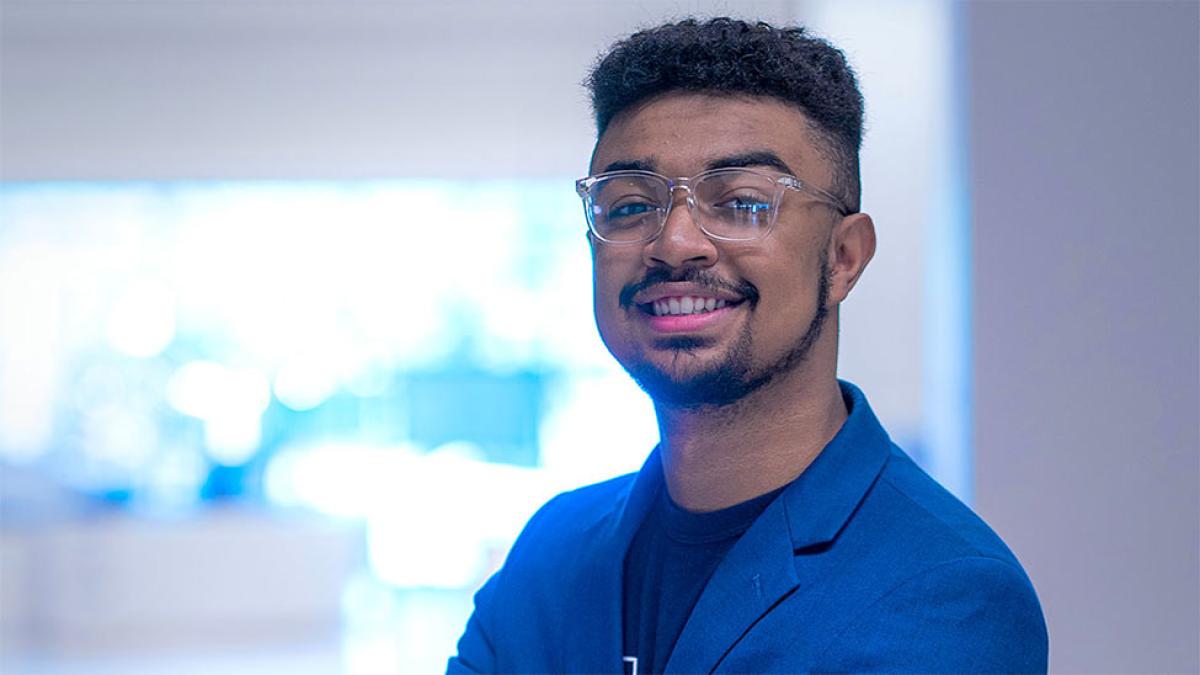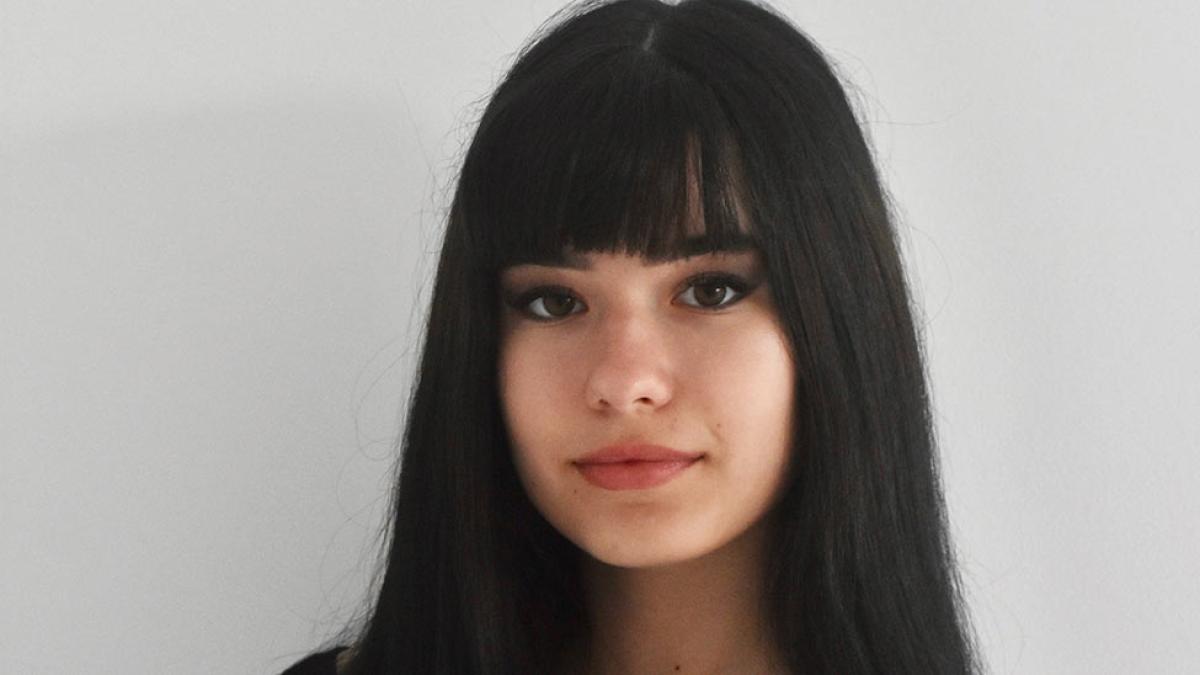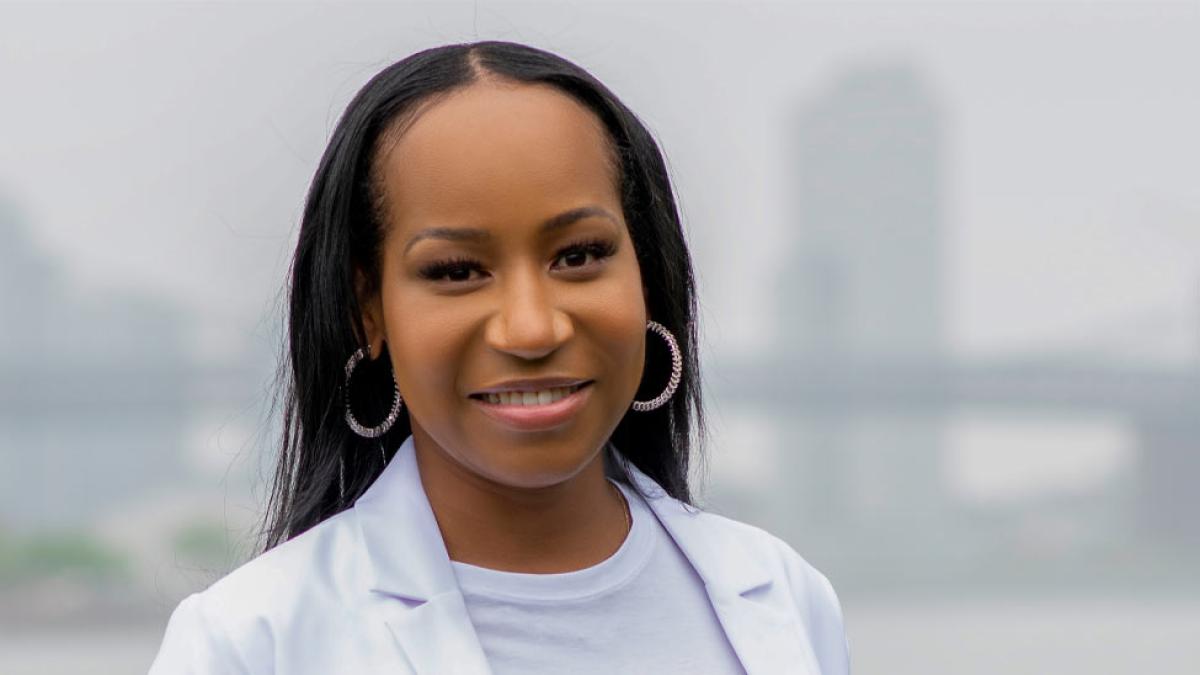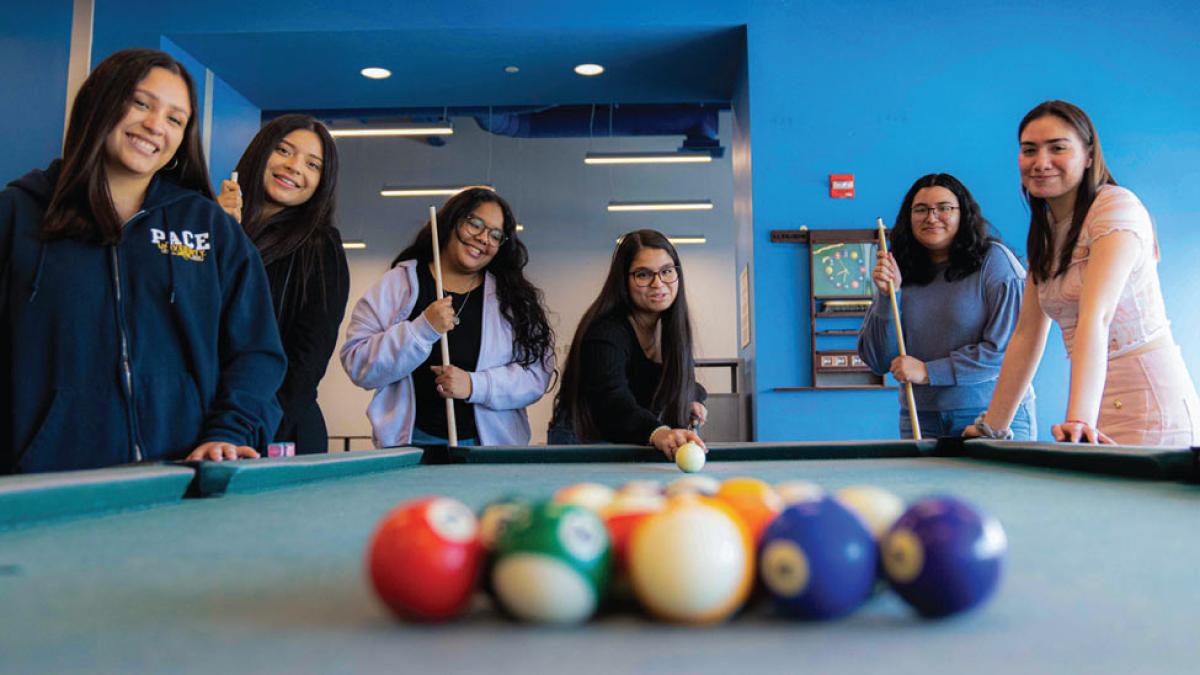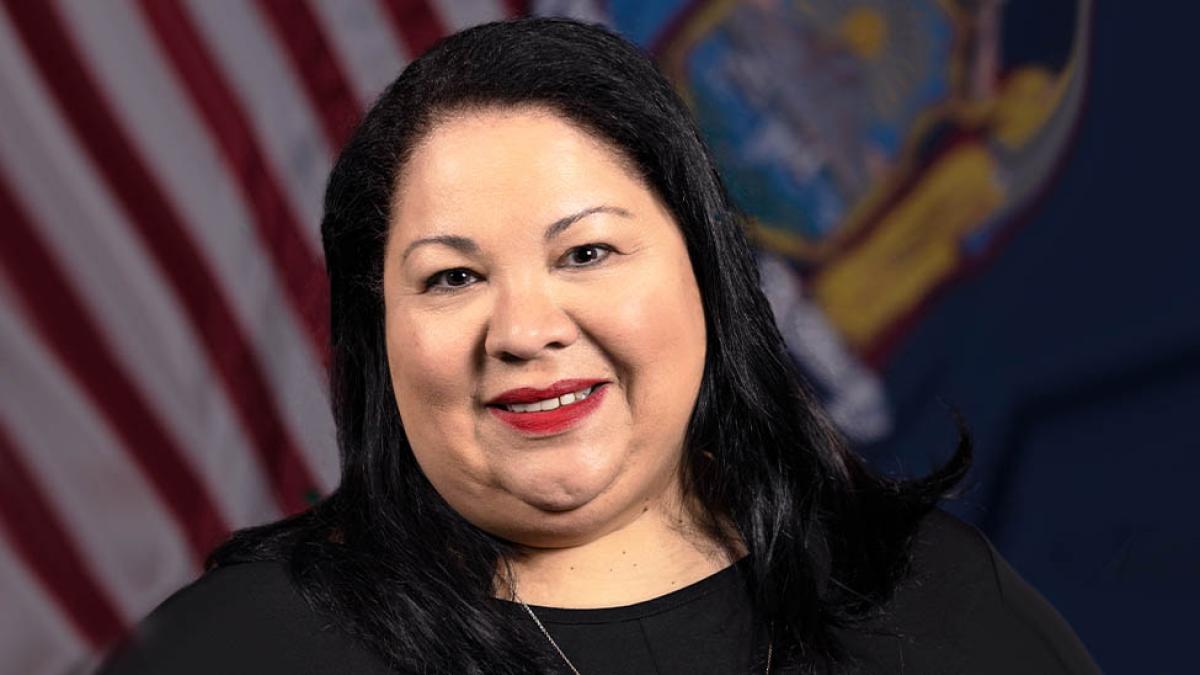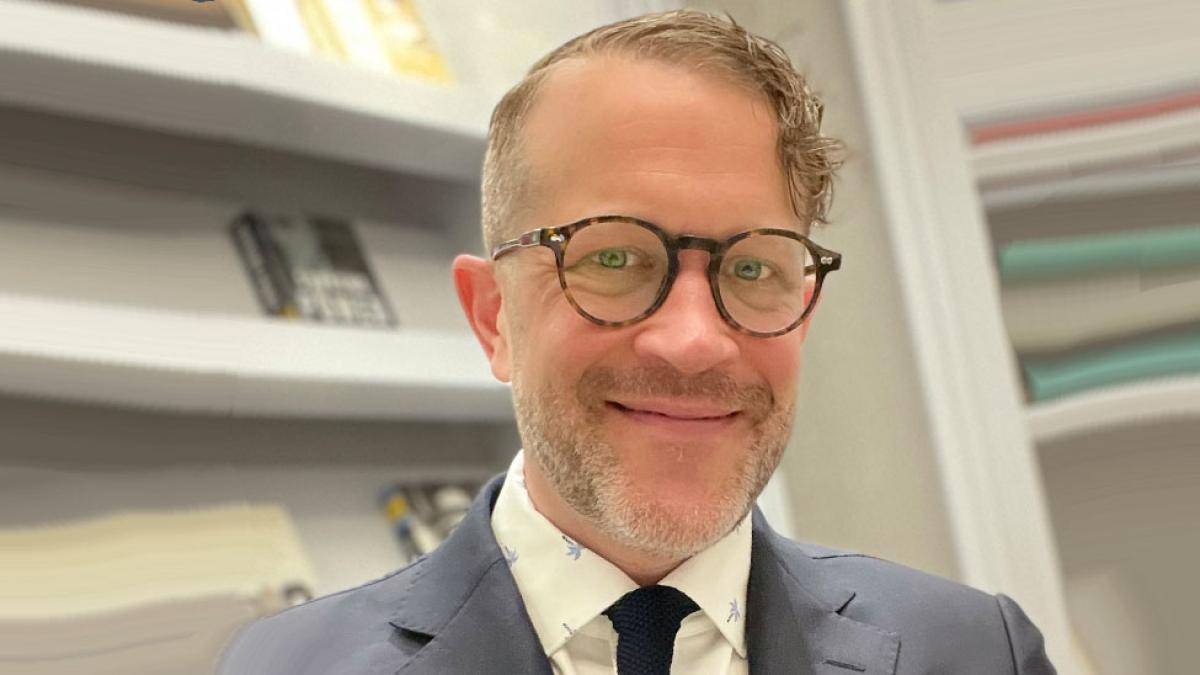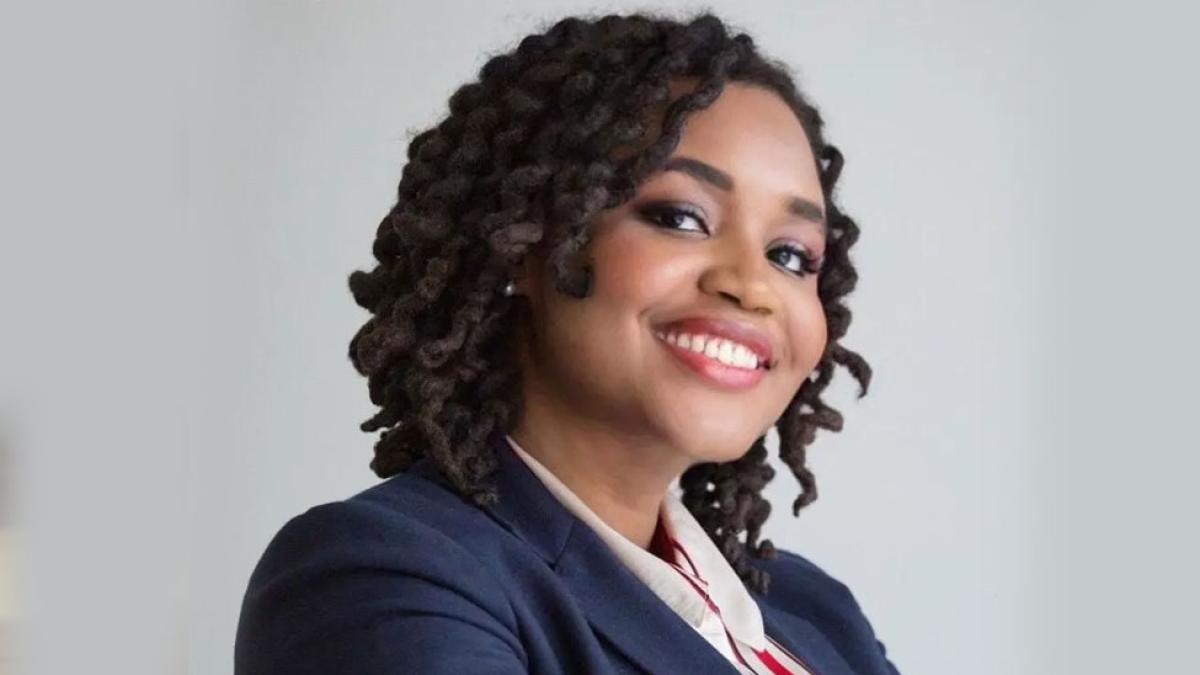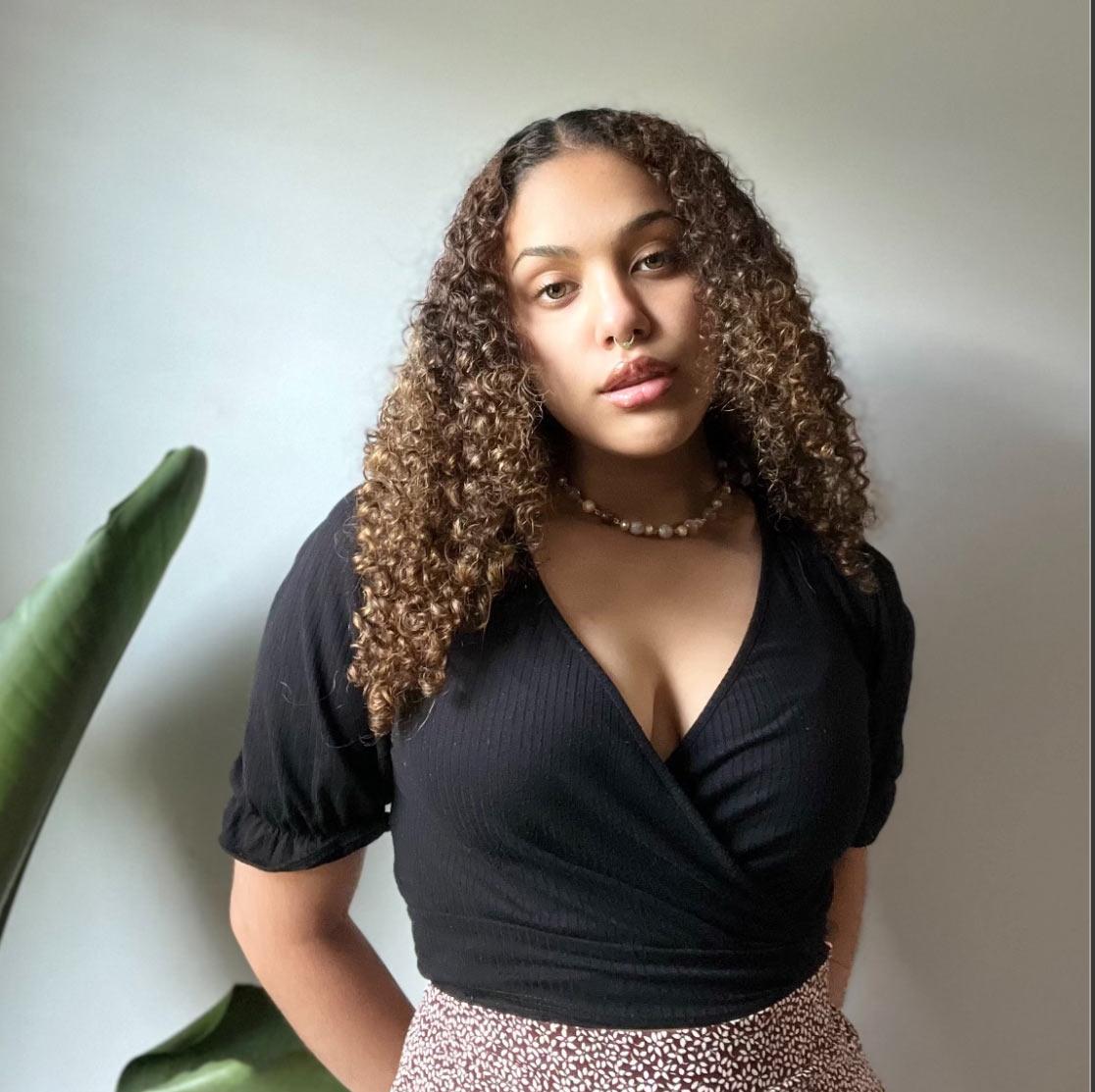
Longtime Trump CFO Weisselberg Pleads Guilty to Tax Fraud (2)
The agreement is “a big win” for prosecutors at the Manhattan district attorney’s office, according to Bennett Gershman, a professor at New York’s Pace University Law School. “Given his position in the company, it would be a proper use of the admissions that he’s made in court about his conduct and his role in the company,” Gershman said. “Those admissions could be used to show the company is engaging in fraud, because he’s admitting fraud, and he’s committing fraud on behalf of the company in terms of his conduct as a CFO.”
‘Menstruation Matters: Challenging the Law’s Silence on Periods’
Bridget J. Crawford and Emily Gold Waldman of Pace University, Elisabeth Haub School of Law have authored Menstruation Matters: Challenging the Law’s Silence on Periods, a book analyzing the law and social movements around menstruation.
Q&A with Madelyn Aryanna Garcia '23
Madelyn Aryanna Garcia '23, Environmental Science, has found a natural fit at Pace.

How did you become interested in pursuing a major in Environmental Science with a certificate in Environmental Conservation?

Ever since I was young, I have had a strong affinity for the world around me. My Latino culture has allowed me to be a natural caretaker of the environment, and as I grew older, I was able to understand why so many low-income Latino households are coping firsthand with the effects of pollution and contamination. A conversation about our environment would be incomplete without acknowledging the importance of climate education and working towards justice for the people and the planet is a community effort. And so, a big reason for my interest in this field is to enable a space that is inclusive of the voices of those who are most impacted. The opportunity to use my privilege to advance ecological literacy is very important to me, and I’m looking to pave the way for a new generation of activism and change that is representative of the population.
Why did you choose to attend Pace?
Originally, I had planned to study outside New York State and wanted to find a school that satisfied the major I was interested in, while also catering to my need to grow as an individual. However, after much consideration, I knew that New York couldn’t get rid of me. Other out-of-state institutions were overwhelming–they felt too big to have an intimate experience. After touring Pace, it just felt right, and I knew that I would really be able to grow here. With smaller classroom sizes, I was able to develop stronger relationships and have individualized attention with professors. Pace’s commitment to Opportunitas was what solidified my decision, and I can confidently say that my academic career opened so many doors to different experiences that I could have only dreamed about.
What have your experiences been like with the Environmental Studies and Science Department? Have certain faculty members been instrumental in your academic journey?
My department has been absolutely instrumental in my academic journey. The quality of the faculty is impeccable, and their passion for the world around us has helped shape me into the individual I am today. Our courses promote hands-on skills that have pertinence for future careers, and faculty connect their backgrounds to real-world issues. Particularly, my mentor, Professor Michael Rubbo, has been the most encouraging in my career. He, along with the rest of my department, has formulated internship experiences for all students, grown our networks, and are building our professional resumes. Professor Rubbo is heavily involved in providing an outlet for students to talk and share ideas with our department and generating a better presence within our campus community.
Have you had internships as a student?
Pace has allowed me the opportunity to grow both academically and in the field. In 2020, I was the recipient of the Julia and Carroll Environmental Conservation Fellowship and worked as a forestry intern with Teatown Lake Reservation. As part of this role, I monitored permanent forest plots to track forest changes within a five-year period study. The following year, I was an environmental campaign engagement intern with the Environmental Advocates of New York (EANY) and worked closely alongside EANY's campaign team to draft communication and outreach materials for the approved New York Proposal 2, the Environmental Rights Amendment, that ensured “a right to clean water, clean air, and a healthful environment” to the New York Constitution’s Bill of Rights. More recently, I was a social media intern with the National Park Conservation Association, working independently to curate social media plans that highlighted BIPOC and LGBTQ+ organizations and influencers.
What activities and organizations, if any, have you been involved with as a student?
I am currently a residential assistant (RA) on the Pleasantville campus, the president of Pace’s NATURE club, an Environmental Studies and Science lab assistant, a member of both Alpha Chi and Alpha Lambda Delta, a former PaceBound ambassador and executive officer of the Asian Student Union, and a participant in the Dyson Scholars in Residence (now known as the Artists in Residence) program.
Are there any challenges you have overcome that you are proud of and would like to share?
It's really interesting to watch yourself grow into the person you never thought you would be. The most intricate challenge I overcame was through my own self-image and worth. Self-love is a concept that is finally receiving the recognition and care that it needs, and it is so important for this idea to be more socially acceptable, without feeling as if it might be seen as something negative. I’ve never felt as if I could accomplish something great or be a leader. I would be the student who sat in the back of the classroom, struggled to raise my hand (despite having so many questions or ideas), and, overall, had allowed others to walk over me.
My first semester at Pace carved the path of change. My prior RA had been a huge inspiration for me; as a fellow student in my field, she empowered a sense of pride that distinguished me as a growing individual, something that has helped guide me to be the woman I am today. I engaged more within my campus community, and this, ultimately, led to my success in cultivating my leadership skills, connecting with my professors, and opening the doors to personal growth and academic opportunities. Through her impact, I followed in her footsteps and became an RA as well, and I hope to inspire the same change and growth in others.
What would you like to do upon graduation/what are your career goals?
I would love to further my education by enrolling in the Master of Science in Environmental Science and Policy offered at Pace. As the New York metropolitan area has deep roots in environmental protection and social justice, after my collegiate experience, I would love to work in positions related to environmental communications or as a policy analyst.
Pace equips you with the tools, skills, and connections necessary to better your personal livelihood and professional career.
What advice, if any, would you like to give to our current students?
Apply yourself! In theory, it sounds so simple, and yet, oftentimes, people have absolutely no idea what to do. Reasonable assumptions may be to just be present in class or to keep on top of your work, but this is just the bare minimum, and it’s so important to go that extra mile. The “comfort zone” is such a dangerous place to be in, and in order to improve yourself, it is so important to face your fears, engage positively with others, take risks, and challenge yourself. Pace equips you with the tools, skills, and connections necessary to better your personal livelihood and professional career. Something as simple as establishing a rapport with your professor can lead you to invaluable success throughout your academic and professional career.
I also strongly suggest taking advantage of the student base. Diversifying your communication and establishing strong relationships with those your age is so important. I have met some of the most talented and friendly people and will be forever grateful to those who have lent a hand to me personally, professionally, and academically.
More Student Stories
Jeremiah Williams '23 found his place on campus within the political science department. He cites courses taught by President Krislov and Matthew Bolton as influential in his journey to understanding the political world.
An Art History/Psychology major and first-gen honors student, Maruszewski speaks about merging the arts and sciences.
I chose Pace because the Forensic Science major is very unique as compared to other programs, and there is a great success rate in job placements for graduates. Forensic Science is solely based on facts and data collected during investigations, and as someone who values justice in our society, I wanted to contribute in the best way I knew how, which is the scientific approach. This major combines science and criminal justice, which made it an easy choice for me.
Getting Credit at AMEX
Before accepting a financial analyst internship at American Express, Business Management student Tianna Orwig '23 wasn't sure a future in finance was for her. But thanks to required Lubin School of Business classes and on-campus opportunities offered by the Center for Student Enterprise, Tianna hit the ground running at American Express, and now, she can't imagine working anywhere else.
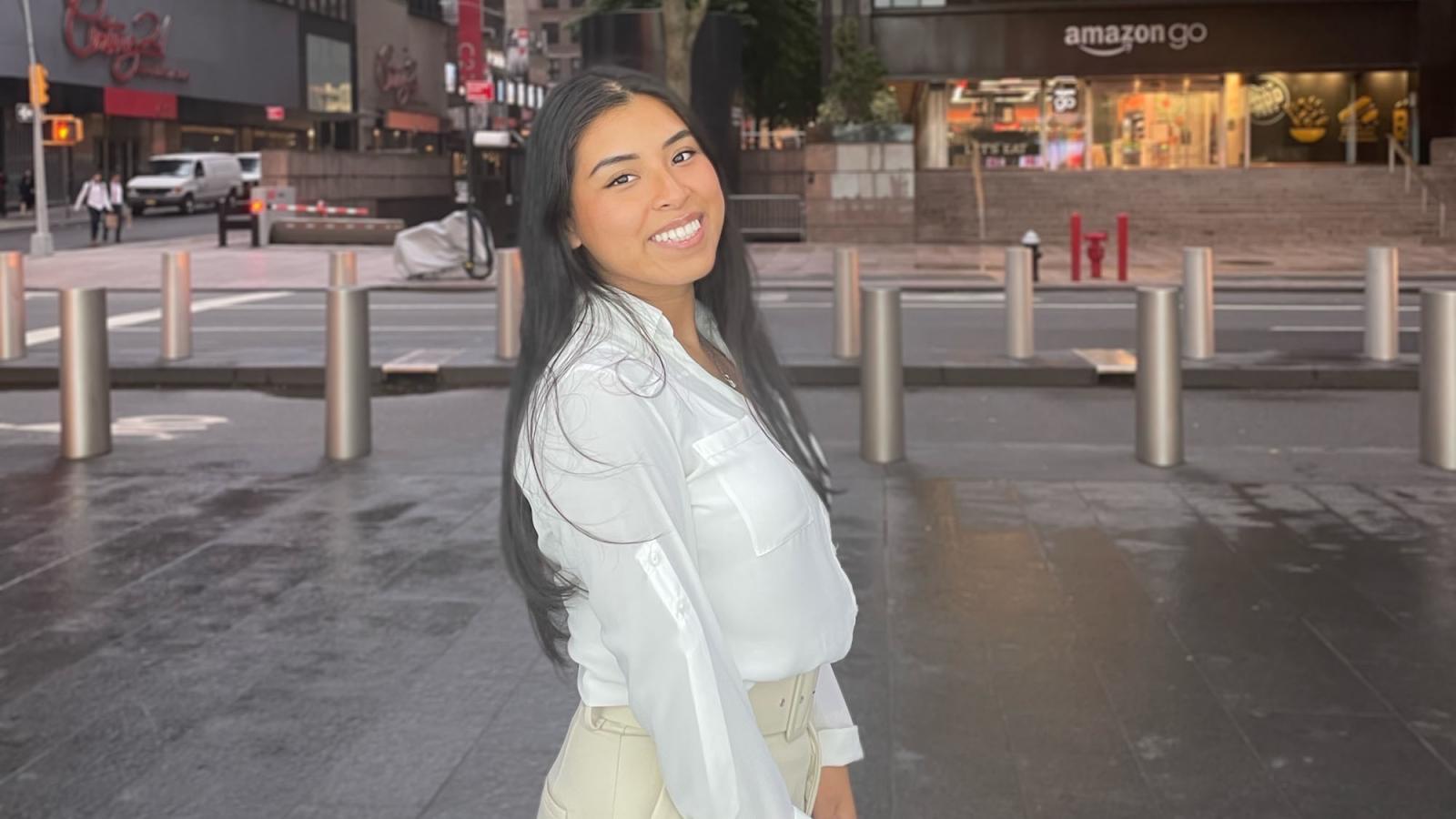
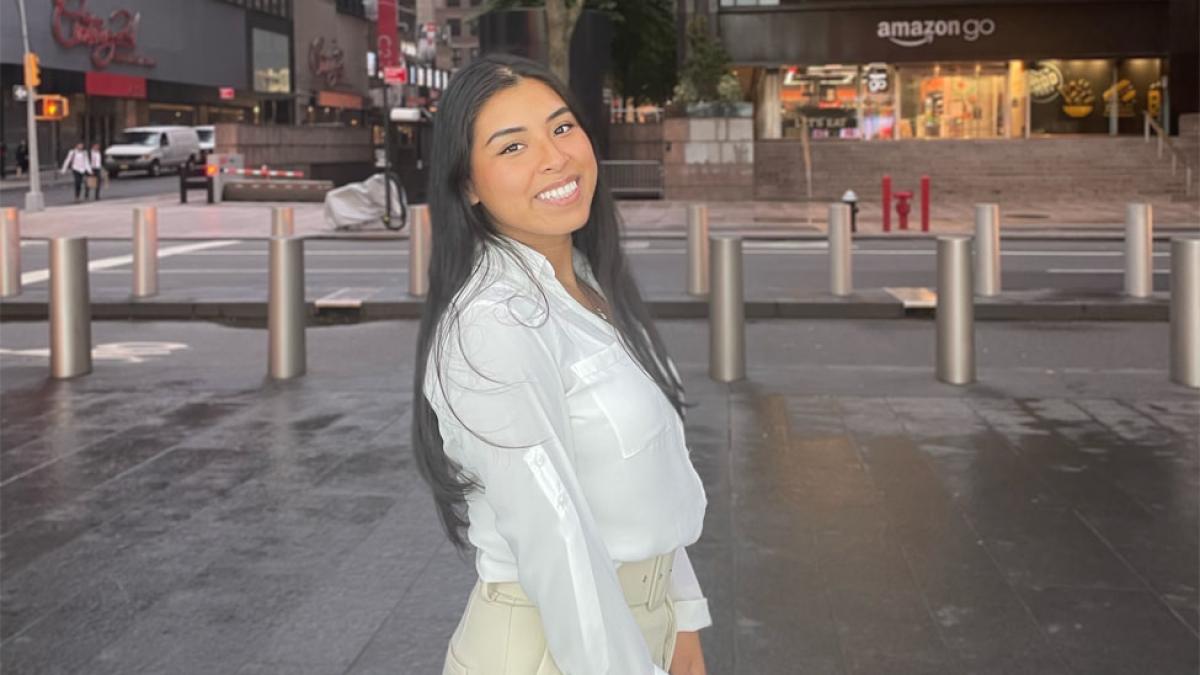
Tianna Orwig
Senior Financial Analyst, American Express
Class of 2023
BBA in Business Management with minors in Economics and Marketing
Pronouns: She/Her
Before accepting a financial analyst internship at American Express, Business Management student Tianna Orwig wasn't sure a future in finance was for her. But thanks to required Lubin School of Business classes and on-campus opportunities offered by the Center for Student Enterprise, Tianna hit the ground running at American Express, and now, she can't imagine working anywhere else.
How has the Lubin School of Business helped you prepare for your current internship?
Lubin's business core requirements have helped me gain a wide range of knowledge about many different subject matters that I use in my internship (management, economics, accounting, and finance). The experiences that Lubin has granted me, such as working at the student run businesses within the Center for Student Enterprise, helped expand my leadership skills and work ethic.
What attracted you to this internship?
Working for a company as large as American Express was really appealing, as it is well renowned in the finance industry. It also has brand recognition.
Describe what a typical day looks like as an intern at American Express.
I go into the New York City office 2-3 days a week. I like to get there early so I can read the latest finance headlines. Throughout the day, I attend meetings with my team, attend events hosted through their campus recruitment team, go on coffee chats with colleagues, and most importantly work on my intern project. During the other days of the week, I do the same but work from home.
What has been the highlight or most enjoyable aspect of your internship so far?
Since my internship is hybrid, the most enjoyable part is when I get to experience being in person. I have been able to meet colleagues and fellow interns at social gatherings hosted by AMEX. We've had breakfasts with senior leaders, intern mixers, a colleague carnival, as well as many happy hours! This allows me to expand my network and have more opportunities.
How has this experience shaped or impacted your career goals?
I never thought I would want to go into the finance industry before AMEX. I didn't realize how large it is and how interesting the work can be. It definitely makes me want to work for a company like AMEX full-time because the company culture is amazing!
How will this experience impact your next semester at Lubin?
This internship has made me realize that I need to advance my technical skills. I think taking classes such as Advanced Spreadsheets and some CIS classes will really help me long term!
Even if you don't know anyone currently in the industry/company you want to work at, use LinkedIn and Lubin's alumni network to your advantage. Having mentors is really helpful!
Do you have any advice for other Lubin students who would like to pursue an internship in the future?
Start looking for internships early! Don't wait until the spring semester to look for summer internships, as a lot of programs open their applications in the early fall. Also, having connections makes a total difference. Even if you don't know anyone currently in the industry/company you want to work at, use LinkedIn and Lubin's alumni network to your advantage. Having mentors is really helpful!
Connect with Tianna:
From CSE to EY
For many Public Accounting students, landing an internship at a Big Four firm is a dream. Lubin School of Business student Meaghan Petrie '22 turned that dream into a reality after attending a Career Services event. Now, she's planning on graduating early this December in order to kickstart her career as soon as possible.

Meaghan Petrie
Assurance Senior, EY
Class of 2022
BBA/MBA in Public Accounting
Pronouns: She/Her
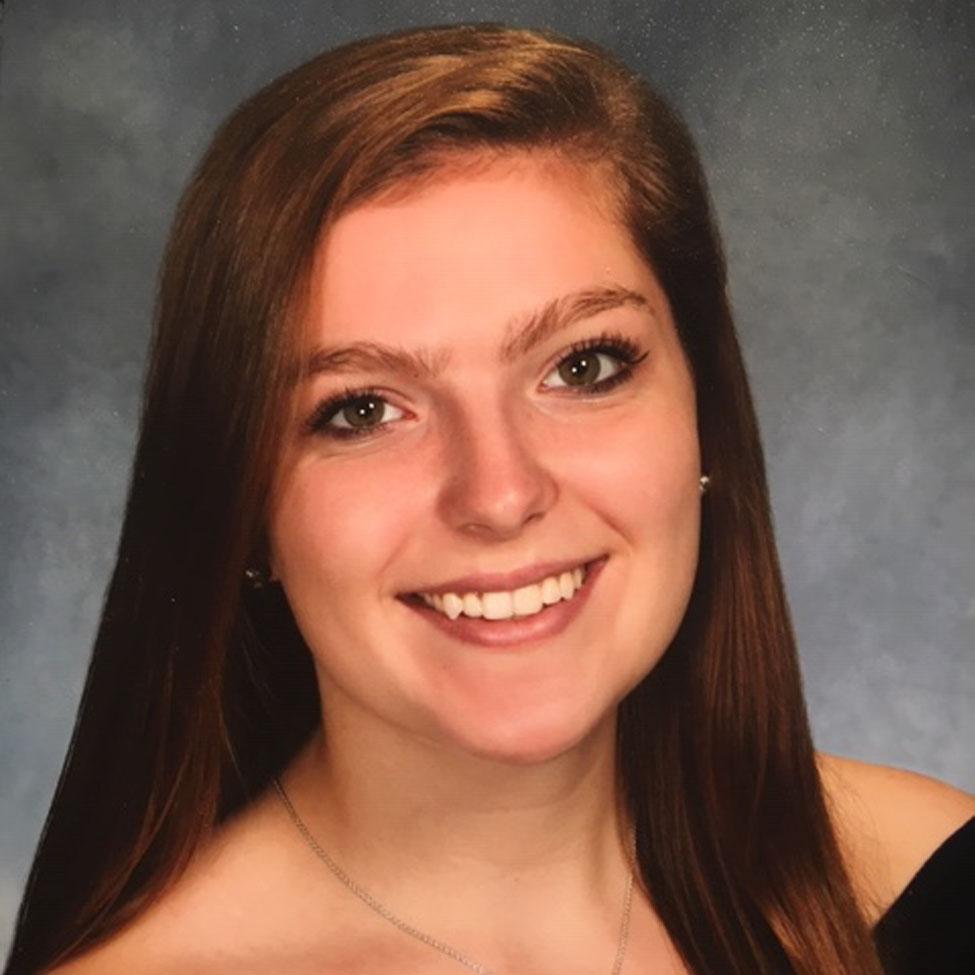
For many Public Accounting students, landing an internship at a Big Four firm is a dream. Lubin School of Business student Meaghan Petrie turned that dream into a reality after attending a Career Services event. Now, she's planning on graduating early this December in order to kickstart her career as soon as possible.
How has the Lubin School of Business helped you prepare for your current internship?
My experience at the Lubin School of Business has prepared me in many ways for my current internship. Lubin offers so many opportunities for students to get involved and get real-world experience while learning from the best professors. Two resources that I think are the most impactful are the Center for Student Enterprise (CSE) and the audit simulation in Advanced Auditing Practices with Professor Ray Reisig. During my sophomore year, I was the Chief Financial Officer of Pace Delivers. Through this experience, I learned how to run a business, prepare financial statements on QuickBooks, and present at board meetings. In my Advanced Auditing class, we spent the entire semester completing a mock audit simulation as the continuing auditor of a shed manufacturing company. We applied the concepts we learned to create workpapers based on supporting evidence to make an opinion on the financial statements. I learned an invaluable amount from both experiences.
What attracted you to this internship?
Career Services held an informal coffee chat with a partner from EY during my sophomore year when I started looking at internships with public accounting firms. I enjoyed the conversation so much that I left knowing EY is where I wanted to end up. Even during the interview process with the Big Four accounting firms, I enjoyed every conversation I had with everyone at EY. The employees and the culture set the Big Four accounting firms apart and I knew EY was the right fit.
Describe what a typical day looks like as an intern at EY.
At EY, every day is different. One day we could be in the Stamford, Connecticut office and the next we could be in the NYC office—or even at a client's office. I work on different tasks that include internal controls, walkthrough evidence, and independence documentation. On top of the audit work, we go through trainings and webcasts and meet with various employees.
What has been the highlight or most enjoyable aspect of your internship so far?
I don't think I could pinpoint one specific aspect that has been the highlight of my internship so far. I have really enjoyed my engagement team. They're incredibly fun, knowledgeable, and helpful. Additionally, the Stamford office has organized many events for the interns to get to know one another and other employees in the office. For example, we've had a scavenger hunt, an ice cream social, a pasta making class, and even workout classes. Also, at EY, they make the interns feel at home and like an integral part of the team. Through the various fun events, counselors, and buddies, there are so many people to help, support, and guide you—not only through EY, but through your career and personal goals, too. They want the best for you, whether EY is in your future or not.
On top of interning at EY, you are also taking four summer courses. What motivates you to work hard?
My friends and family motivate me to work hard. They support me in everything that I do, and I want to continue to make them proud. Additionally, I like to stay busy and push myself. I know I can accomplish anything that I put my mind to. Continuously moving forward and putting in the effort will allow me to reach my goals.
What motivated you to enroll in summer courses?
I decided to enroll in summer courses because I want to graduate early in order to take the Certified Public Accountant (CPA) exam and start my career. I am excited for what lies ahead, and I want to push myself to get there.
How has your internship experience shaped or impacted your career goals?
My internship experience has pushed me to make a plan for studying and taking the CPA exam. Before my internship, I knew I wanted to take the CPA exam after graduation but didn't think about it any further. Now I know I want to be done with it by August 2023. Additionally, the internship has confirmed that I want to start my career at EY. Their staff has made the internship a really enjoyable experience and I would like to stick with them.
How will this experience impact your next semester at Lubin?
Even though I'm going into my last semester at Lubin, I'm still going to try to take advantage of all the workshops and learning experiences available. I'm going to continue to work hard in my courses and apply what I've learned at EY.
My advice for other Lubin students that are looking for an internship would be to put yourself out there and take advantage of the opportunities that the Lubin School of Business creates for you. The events and workshops at Career Services with Jim Davis helped me tremendously.
Do you have any advice for other Lubin students who would like to pursue an internship in the future?
My advice for other Lubin students that are looking for an internship would be to put yourself out there and take advantage of the opportunities that the Lubin School of Business creates for you. The events and workshops at Career Services with Jim Davis helped me tremendously. Career Services helped me develop my resume and enhance my interview skills. They constantly have firms coming in for formal or informal chats and events that allow you to get to know the recruiters and the firms.
Connect with Meaghan:
LinkedIn: Meaghan Petrie
Instagram: @meaghanpetrie
Two Lubin Students Awarded Prestigious 2022 UN Academic Impact-Millennium Fellowships
Lubin students Angelina Bellucci and Nikol Taba Montoya are among the 17 Pace students selected for the prestigious and highly competitive United Nations Academic Impact and MCN Millennium Fellowship.


A hearty congratulations to the 17 Pace students who were selected for the prestigious and highly competitive United Nations Academic Impact and MCN Millennium Fellowship. Lubin students Angelina Bellucci and Nikol Taba Montoya joined over 3,000 peers from 200+ campuses worldwide as they pursued semester-long social impact projects related directly to UN Sustainable Development Goals (SDGs). A record 31,397 students from across the globe applied and only 8% were accepted! Millennium Fellows receive world class professional development and access to incredible connections. See more at the Millennium Fellowship website.
Lienhard School of Nursing Students Receive Annual National Scholarship
This summer Nurses Educational Funds, Inc. (NEF) awarded a total of 32 graduate nursing scholarships to nurses attending 21 different graduate nursing programs across the United States.
This summer Nurses Educational Funds, Inc. (NEF) awarded a total of 32 graduate nursing scholarships to nurses attending 21 different graduate nursing programs across the United States.
Two Pace University Lienhard School of Nursing (LSN) graduate students, Audrey Arcari and Meredith Sheeha, received NEF Scholarships for 2022–2023.
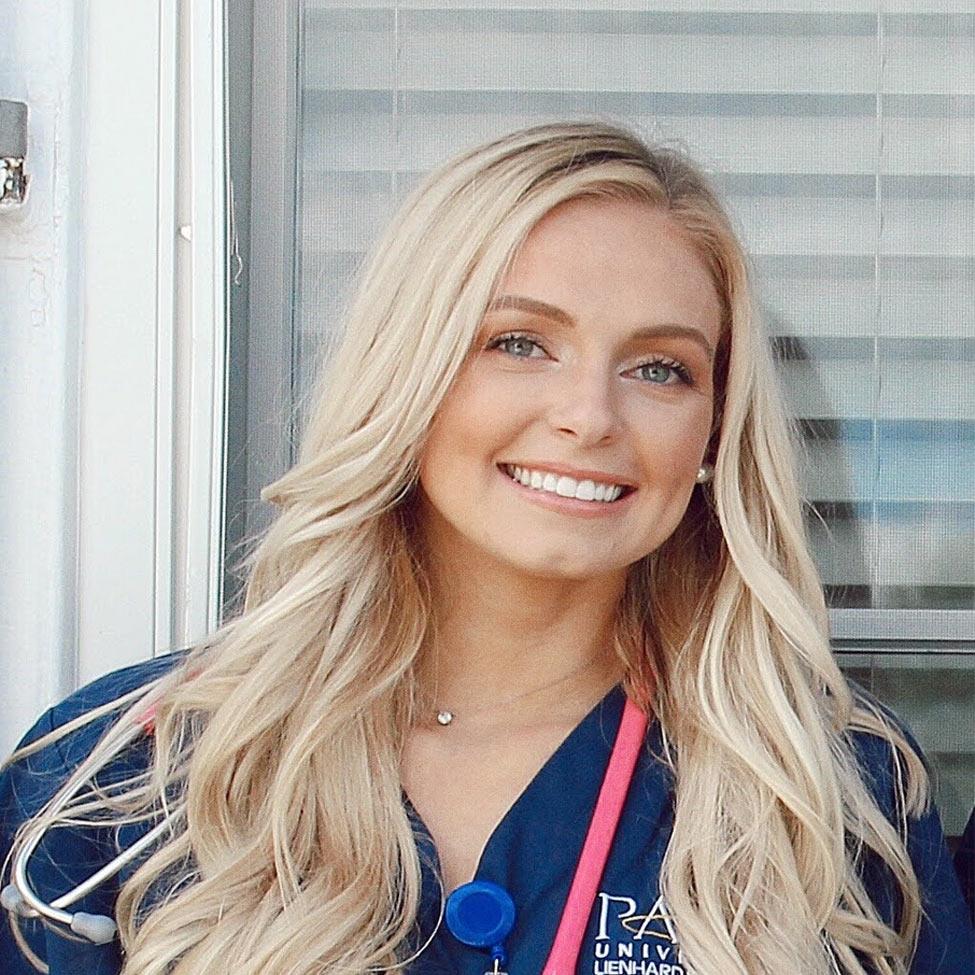
Audrey is currently enrolled in the Family Nurse Practitioner (FNP) program at Pace's College of Health Professions, where she also received her undergraduate bachelor’s degree in nursing.
Throughout the pandemic, Audrey noticed the high utilization of emergency departments for primary care along with the health disparities in the LGBTQIA community. She decided to enroll in an FNP program to be a champion of primary care and promote competent care to those with disabilities.
Audrey is also a certified emergency nurse and encourages excellence in her field by precepting nurses into new roles. She became a sexual assault forensic examiner to learn more about the process in which victims are treated at the hospital and to serve as an advocate for those who have experienced emotional and physical trauma. Because positivity and kindness are two of her most important values, she started a Peer Shout-Out committee in her workplace to provide employees in the emergency department individual recognition by their peers for their outstanding patient care performances.
Meredith is also in the FNP program at Pace. She has worked as an inpatient oncology nurse at Memorial Sloan Kettering and as a home care nurse for the Visiting Nurse Service of New York assisting patients with chronic illnesses and recent hospitalizations to manage their health at home. She also volunteered for the Friends of Nurse Family Partnership, an organization that provides home care for first-time, low-income mothers. Particularly throughout the COVID-19 pandemic, this work helped paint a fuller picture of the healthcare system for Meredith and confirmed her desire to work in primary care.
As a nurse practitioner, Meredith hopes to perpetuate the positive experiences she’s had in her undergraduate, graduate, and professional education through clinical and laboratory teaching. She is grateful to all the preceptors, educators, colleagues, and nurse leaders who have helped her in her career thus far and is especially thankful to the Nurses Educational Funds for making her goal of becoming a family nurse practitioner attainable.
Nurses Educational Funds, Inc., (NEF) is one of the largest non-profit professionally endorsed sources of scholarships for graduate nursing master’s and doctorate degree study in the United States. It depends solely on donations to advance its mission of promoting leadership through scholarship support. This is done for professional nurses seeking masters and doctorate degrees in nursing education, practice, research, administration, and health policy.
The need for nurse leaders in the United States is more critical than ever. NEF funded scholars have become outstanding faculty and deans of schools of nursing, renowned researchers, and expert administrators – all leading change in every arena across the country and globally. Since NEF’s inception in 1912, over 1,300 nurses throughout the United States have received NEF scholarships.
You can read the full biographies of all 32 Scholarship recipients for the 2022–2023 academic year on the NEF website.
The annual NEF Scholarship online application process opens October 1, 2022 and closes February 1, 2023. If you are interested in applying for a graduate nursing scholarship, please visit the NEF website application page. All the eligibility requirements for receiving a scholarship are published there.
More From Pace
There is a saying that beauty is in the eye of the beholder and according to Dawn, beauty is also expressive. Aesthetics has allowed her to make others’ dreams come true, and to her that is an art.
Pace's faculty are working across disciplines to address the health needs of today.
With the help of a nearly $2M federal grant, this inaugural cohort of nursing students is poised to change the face of patient care.
Publishing Executive Turned Author: Ebony Ladelle '10
Marketing and publishing executive-turned author Ebony Ladelle writes about the universal language of love.
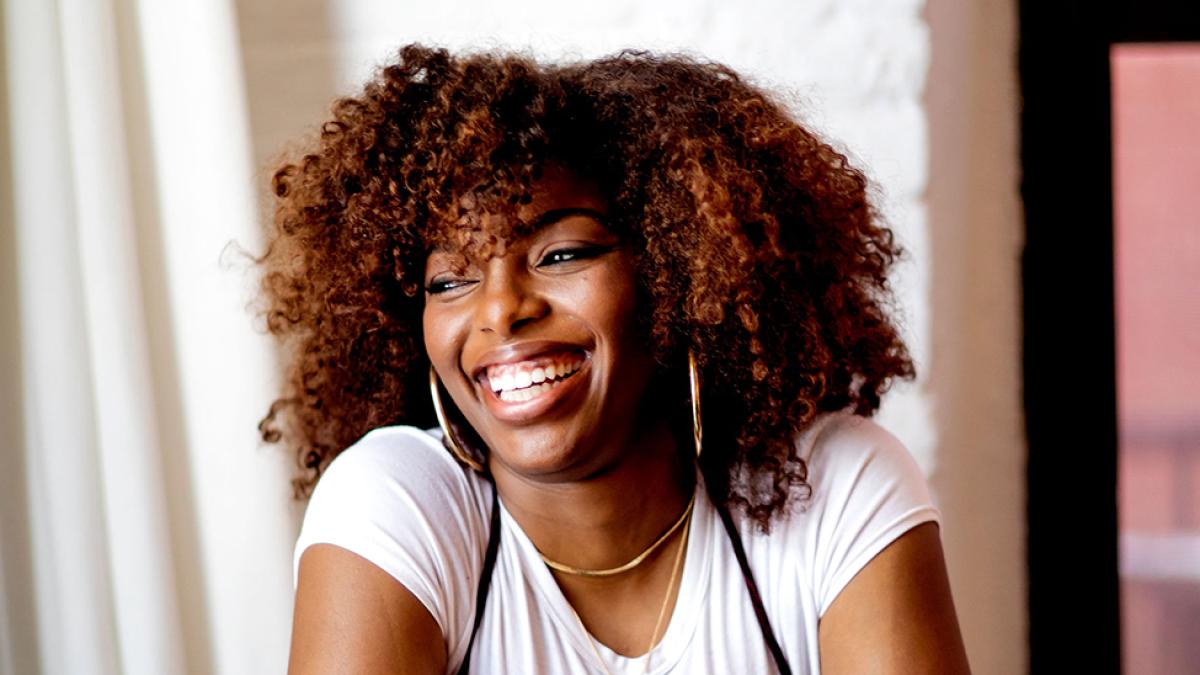
Marketing and publishing executive-turned author Ebony Ladelle '10, MS Publishing, writes about the universal language of love.
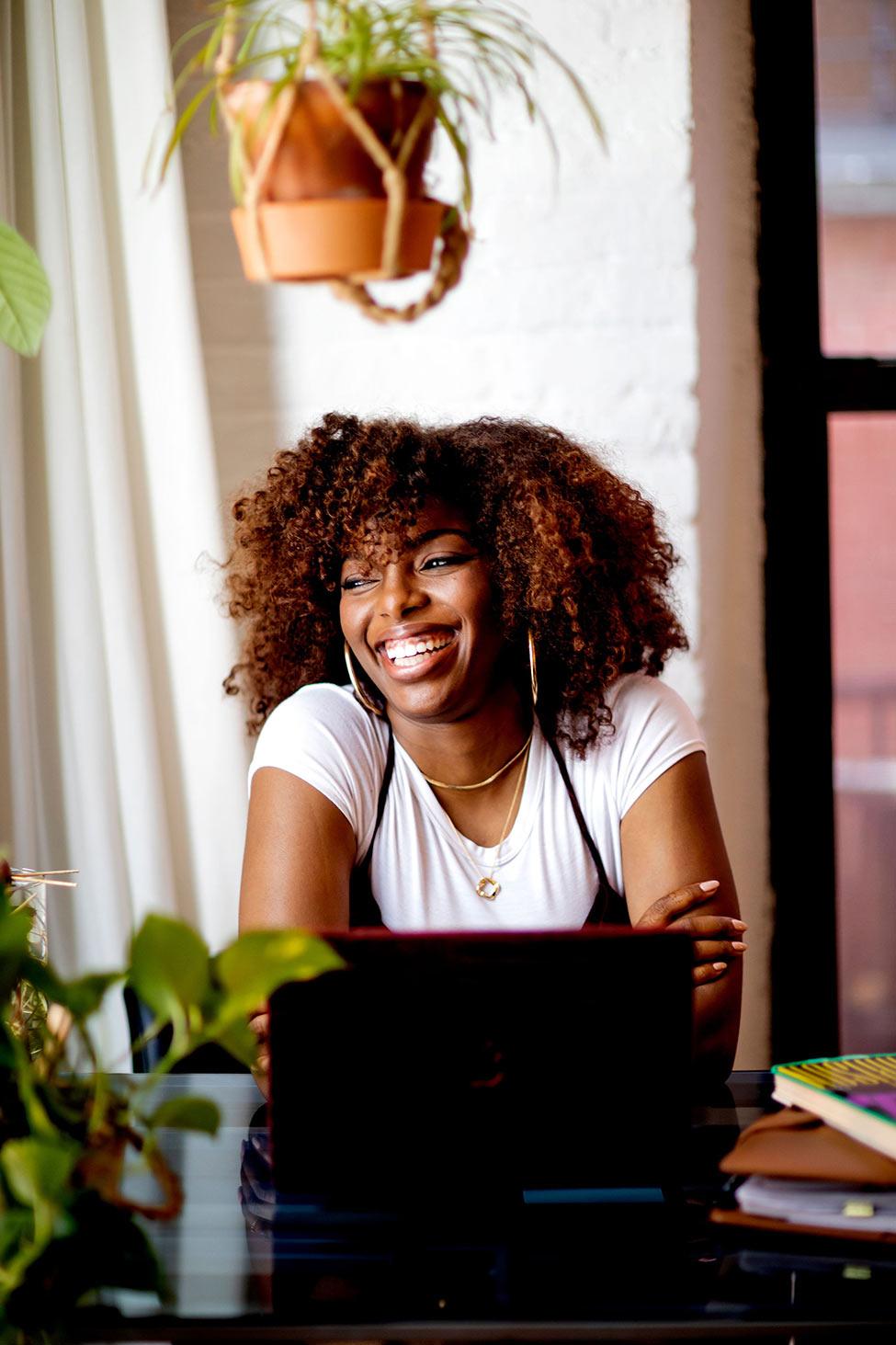
Recently, you were marketing director of brand publishing at Penguin House, and have since transitioned to full-time author, with your first book, Love Radio, released in May 2022.
Tell us more about the central theme of this book and what inspired you to write it.
The book is about two teens, Dani Ford, an aspiring writer whose sole focus is to move to New York to pursue her dreams, and Prince Jones, a local Detroit DJ who gives love advice on the airways and is also looking to pursue Dani. After they finally cross paths at the Detroit Public Library, Prince convinces Dani to go on three dates in order to fall for him, and sparks fly. However, as a lot of my readers have put it, Love Radio is also a story of love for community, family, your hometown, and yourself.
Love Radio has been featured on the Today Show; was reviewed by The New York Times, and included on lists such as People magazine’s Best Books of the Summer (online and print edition); Apple's Best Books of 2022; and Amazon's Best Young Adult Books of the Month. You also authored an article in Cosmopolitan about your inspiration for writing it.
What are your thoughts about this book’s contribution to the current young adult fiction genre? What would you like readers to take away?
I hope this book’s contribution is a positive representation of Black teenage life. I was born and raised in the metro area of Detroit, a predominately Black city, and stayed there most of my childhood. Many of the teen romance books I had read and movies I had seen were never directed at me—girls like me never got to be swept off our feet. So, with Love Radio, my hope is that every reader will come to this book because they love love. Love is a universal language, and I think it’s equally important to show how people give and receive love in different ways. My hope is that readers will get into Love Radio and appreciate it from that lens.
What was it like writing a book and being a full-time career professional?
I wrote Love Radio when I was working as a marketing director at HarperCollins and began promoting it when I switched jobs and began working at Penguin Random House. It was interesting, because in 2019, I would get up super early and write before I went to work. Then, Covid happened, and I was able to work remotely, so I would get up at the same time I did pre-pandemic and use my commute time to write instead of sleeping in a little later. It’s absolutely how I was able to finish this book, and I’m thankful I made the most use of that time.
Promoting Love Radio in the beginning was manageable because many of my events were virtual and I was able to schedule them before or after work or during lunch. However, once the world opened back up and I began to travel for in-person events, I realized the pressures of both the job and traveling were too much for me, and I decided to take a sabbatical, of sorts, and use the time to focus on my writing career. I hope to get back into publishing one day, but I’m also very thankful I have this time to be present for my debut year.
What attracted you to pursue the MS in Publishing at Pace University?
I graduated with a Bachelor of Arts in Journalism from Howard University in Washington, DC, during a recession, and had a hard time getting call backs for publishing jobs, so I began to research graduate programs that could help me move to New York City, gain more industry knowledge, and, ultimately, start a career in book publishing. I found Pace during my research, and, after I applied, was accepted with a scholarship and financial aid. This was key, since financial constraints were an issue for me, and I was unable to move to the city on my own.
Were there certain faculty members who were instrumental in your academic journey?
Yes, I remember having Professor Manuela Soares teach one of my classes and how invaluable her knowledge was. Before I graduated, I told her I hope she becomes [head of] the Publishing program someday, so it’s wonderful to see that it actually happened!
How has your graduate degree in Publishing prepared you for your professional life?
It prepared me in many ways. It provided me with a network of young publishing professionals such as myself who were able to look out for one another and help each other land jobs in different publishing houses (since getting a job in publishing in a lot of ways is about who you know). It also taught me the basics of the bookmaking process, which helped me be more confident in the job once I started working.
The [MS in Publishing program] provided me with a network of young publishing professionals such as myself who were able to look out for one another and help each other.
As you look back at your time as a Dyson student, how did it influence you to become the person you are today?
Being able to attend a college in New York City completely changed my life. The location is so diverse, and so I was able to make friends with students from all over the US and the world, friends who are still a part of my life to this day. To me, that is invaluable.
What do you love about New York City and being a writer in this town?
Although I recently moved back to DC, what I did love about living in Brooklyn and New York City, in general, was the access to so many literary events, the plethora of food spots to choose from, the concerts, and just the culture of New York City. I loved every bit of my time here and what I learned working in publishing.
What advice would you give to our students, as they navigate their undergraduate and/or graduate academic life?
Take each and every one of your classmates seriously and network with them, because they might be the person that can help you get a job later down the road.
More Dyson Alumni
From award-winning journalist, to first female editor-in-chief, CEO, and publisher of the nation’s largest Spanish language newspaper, to New York State Secretary of State, Commissioner Rossana Rosado is inspired by the stories of others.
Marketing executive and alumnus Richard Bourque '00 draws inspiration for his creative process from his Art History degree, strong work ethic, and desire to make positive progress in the world.
“Pace allowed me the space and grace to form my own distinct value system, while expanding my knowledge of scholarly political theories and feminist texts to prepare me for my career.”
Despite SCOTUS EPA Ruling, Biden Has Options to Address Climate Crisis
The ruling signaled that broad climate measures will have to come through new laws passed by Congress, not through EPA powers granted to the agency under the Clean Air Act, said Katrina Fischer Kuh, an environmental law professor at Pace University.
New York Law Journal Announces 2022 Lifetime Achievement Award Winners
The New York Law Journal congratulates Bennett L. Gershman, distinguished professor of law, Elisabeth Haub School of Law at Pace University.
